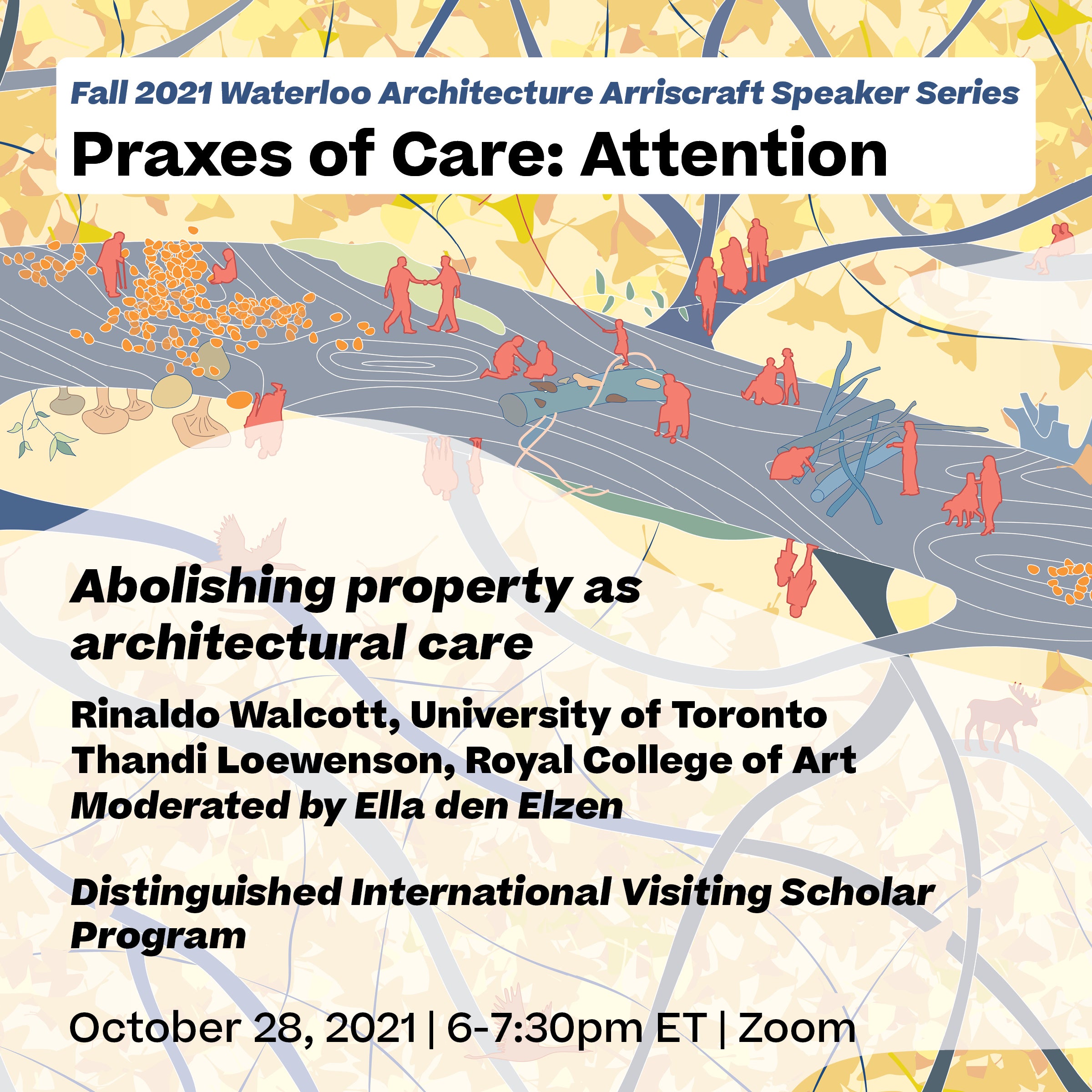
Please join us for Abolishing property as architectural care, the second of five conversations on the theme of attention, with speakers Rinaldo Walcott, Professor, Women and Gender Studies Institute, University of Toronto, and Thandi Loewenson, Royal College of Art. Their short presentations will be followed by a discussion moderated by Ella den Elzen, University of Waterloo.
Praxes of Care asks, “what is an architecture of care?” Over four terms–Fall 2021 to Winter 2023–a series of conversations will bring together two or more architects, designers, researchers, artists, activists, and care workers to discuss care processes according to the themes of Attention, Action, Communication, and Maintenance. The series is curated by faculty, staff, and representatives of student groups: Treaty Lands Global
Stories, Bridge, and the Sustainability Collective. Recent calls for change have shifted the discipline toward the underlying social and ecological processes enabled by the production of architecture. By listening to and learning about care practices from interdisciplinary perspectives, we can begin to reshape the discipline of architecture into a form of care.
FALL 2021: ATTENTION
“Caring about means that we are attentive to the needs that need to be addressed. Before any caring process can begin, someone has to recognize the need for care. This is a more difficult task than it at first seems: some needs are made difficult to see or deliberately ignored.” — Joan Tronto
Paying attention is the initial step of the caring process. Western technoscience theorists, Aryn Martin, Natasha Myers, and Ana Viseu, describe attention as “a mode of inquiry mediated by hesitations, questions, and observations: it is a practice of not knowing what to do even as one wants to respond.”
What is observed, focused on, or paid attention to is filtered through our individual experiences and understandings of the world. In bringing attention to something, other things may be neglected in the process. What we pay attention to effects and reflects our worldviews and the decisions we will make. Not all attention will lead to action and that can be very important. Yet the act of paying attention also calls on us to bear witness, fight for recognition, and coordinate our efforts in the struggle for equity and inclusion. This set of conversations explores how architects can be attentive to care needs while remaining critical of how and to whom attention is given.
Accessibility: Waterloo Architecture is committed to achieving accessibility for persons with disabilities who are attending the event. Closed Captioning will be available during the live event. For accommodation questions and requests, please contact us in advance of the event at julie.dring@uwaterloo.ca.
For more information on this series and other events presented by Waterloo Architecture, please follow us @waterloo_architecture.
This presentation was made possible through funding generously provided by GCI Ventures in support of international research and education initiatives.
If you enjoy this lecture series and would like to help the School of Architecture continue to provide similar education activities and engagement opportunities, please visit our support page. Thank you for your dedication to our students and to our School!